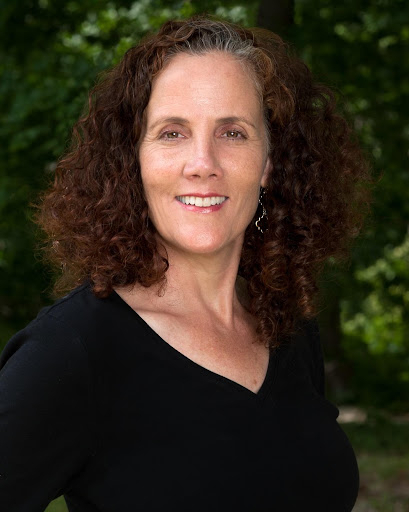
The most successful leaders in society have many things in common. Strategic thinking, self-awareness, and transparency, to name a few qualities. However, the idea of an abundance leadership mentality - or people who believe in seeing the world as resource sufficient and view power as shareable - is a thought model that more and more successful leaders are adopting today.
That's where organizational development consulting firms, like Organizational Performance Group (OPG) come in. Laura Freebairn-Smith co-founded OPG with the intention of helping leaders realize their full potential, as well as the full potential of the organizations they run. As a former consultant for distinguished companies such as ESPN and the New York Times, Freebairn-Smith is considered an expert in strategic organizational development.
"OPG believes it is possible to create well-run organizations in which employees understand the complexities of organizational life and are productive contributors within those constraints," says Freebairn-Smith. "Our work is done in the context of relationships, which involves working with organizations to ensure continued monitoring, discussion, and implementation of new ideas."
Freebairn-Smith offers OPG's clients guidance in the redesign of their organization's structure as well as the creation of strategic plans through carefully developed analytical practices and strategic development. OPG firmly believes that people and their ability to work together are critical to the success of an organization.
THE IMPORTANCE OF GOOD LEADERSHIP
According to Freebairn-Smith, there are hundreds of leadership models and hundreds of millions of articles on leadership. Why? Leadership matters greatly to those working under the leader's guidance; oftentimes their livelihood, and sometimes reputation, is at stake.
On a larger scale, the world's well-being is at stake. Freebairn-Smith believes leaders have the power to make decisions that directly influence the wellbeing of their staff, their community, and ultimately the wellbeing of the world.
An organization's culture, habits, and behavior are mainly established by its leader. Employee satisfaction and productivity are directly linked to decisions made by an organization's leader. In fact, OPG believes that an organization's culture, habits, and behavior are the foundation for having an outstanding product, service, and impact on the world. Through the abundance leadership model, OPG encourages leaders to be ambitious, not for monetary gain beyond what is needed, but for the positive impact that will leave a true legacy.
ABUNDANCE VERSUS SCARCITY LEADERSHIP
The two most popular models of leadership today are scarcity leadership and abundance leadership. Freebairn-Smith says that abundance and scarcity mindsets stem from a leader's underlying worldview.
The scarcity leadership mindset is characterized by the belief that there is not enough abundance or resources to be distributed or shared within an organization. Freebairn-Smith emphasizes that leaders with a scarcity mindset work from a place of fear and control.
Leaders with a scarcity mindset often decrease or drain the energy of their employees, rather than boosting energy levels. In extreme cases, a system that is experienced as having high scarcity can lead to violence and intolerance within the organization.
"Scarcity bosses are difficult to work for and negatively impact their organization's perceived health," says Freebairn-Smith. "Scarcity mental models produce hoarding and intra-system stress."
On the other end of the spectrum, abundance leadership takes the wellbeing of both the leader and their staff into consideration. When people think of a boss that they have loved working for in the past, they are usually able to list off a few distinctive attributes or qualities that made that boss a pleasant person to work for. These bosses often have the qualities of an abundance leader.
"When a system is viewed as abundant, fear of scarcity decreases, and sharing increases," says Freeebairn-Smith.
Abundance leaders are characterized by their empathy, high cognitive intelligence, and their appropriate management and protection of their staff. Through her extensive research and doctoral work, Laura Freebairn-Smith ultimately adopted the abundance leadership model as OPG's primary instrument and leadership model.
Freebairn-Smith says the model creates a spectrum of abundance and scarcity models from which a leader operates. The spectrum then shows what leadership traits are reflected in a leader's daily behavior.
Understanding the broad spectrum of leadership models is the key to clearly gauging an organization's culture, future outcomes, and overall productivity and performance.
ABUNDANCE LEADERSHIP'S GLOBAL IMPACT
At its most profound level, Freebairn-Smith says abundance leadership creates healthy organizations and healthier communities, which ultimately leads to the creation of healthier economies and a healthier planet. Most often, abundance leaders empathize with societal issues and have an overall goal to help the world in whatever way they can.
"Abundance leaders bring creativity, optimism, action-orientation, and empowerment of others to their workforce," says Laura Freebairn-Smith. "They also use their power and resources to improve the world for others."
It is not uncommon for abundance leaders to question long-held truths about a system's underlying beliefs and structure. These factors perpetuate inequities and worldwide suffering. Abundance leaders strive for change, as well as justice in the workplace as well as in the world.
THE FUTURE OF ABUNDANCE LEADERSHIP
One of OPG's strongest beliefs is that abundance leadership will ultimately become the most effective leadership model to use in order to grow leaders and guide decisions. Through consulting firms like OPG, leaders can learn how to combine the abundance leadership model with other leadership models to create a transformative change within their organizations.
Through OPG, leaders can register for informational seminars such as the Abundance Leadership Program. The program is an intensive, four-day course that takes place twice a year in Vermont. More information about OPG's programs and services can be found on the OPG website.









